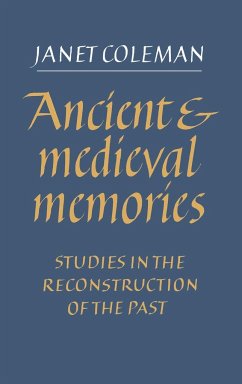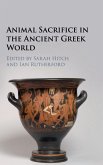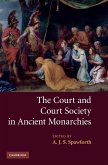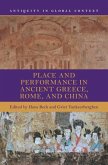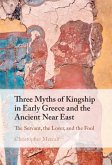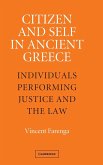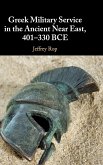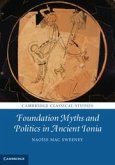This book is an analysis of thinking, remembering and reminiscing according to ancient authors, and their medieval readers. The author argues that behind the various medieval methods in interpreting texts of the past lie two apparently incompatible theories of human knowledge and remembering, as well as two differing attitudes to matter and intellect. The book comprises a series of studies which take ancient texts as evidence of the past, and show how medieval readers and writers understood them. The studies confirm that medieval and renaissance interpretations and uses of the past differ greatly from modern interpretation and yet betray many startling continuities between modern and ancient and medieval theories.
Table of contents:
Introduction; Part I. The Critical Texts of Antiquity: 1. Plato; 2. Aristotle; 3. Cicero; 4. Pliny and Roman naturalists on memory; Borges's Funes the Memorious; 5. Plotinus and the early neoplatonists on memory and mind; 6. Augustine; 7. Augustine, De Trinitate; Part II. The Practice of Memory During the Period of Transition from Classical Antiquity to the Christian Monastic Centuries: 8. The early monastic practice of memory: Gregory the Great; Benedict and his rule; 9. Bede, monastic grammatica and reminiscence; 10. Monastic memory in service of oblivion; 11. Cistercian 'blanched' memory and St Bernard; 12. Twelfth-century Cistercians: the Boethian legacy and the physiological issues in Greco-Arabic medical writings; Part III. The Beginnings of the Scholastic Understanding of Memory: 13. Abelard; 14. Memory and its uses: the relationship between a theory of memory and twelfth-century historiography; Part IV. Aristotle Neoplatonised: The Revival of Aristotle and the Development of Scholastic Theories of Memory: 15. Arabic and Jewish translations of sources from antiquity: their use by Latin Christians; 16. John Blund, David of Dinant, the De potentiis animae et objectis; 17. John of la Rochelle; 18. Averroes; 19. Albert the Great; 20. Thomas Aquinas; Part V. Later Medieval Theories of Memory: The Via Antiqua and the Via Moderna: 21. John Duns Scotus; 22. William of Ockham; 23. The legacy of the via antiqua and the via moderna in the Renaissance and beyond; Conclusion.
This book examines how medieval readers interpreted and used history as presented to them in ancient documents and how this interpretation differs from and resembles that proposed by modern historians.
This book comprises a series of studies which take ancient texts as evidence of the past, and show how medieval readers and writers understood them.
Hinweis: Dieser Artikel kann nur an eine deutsche Lieferadresse ausgeliefert werden.
Table of contents:
Introduction; Part I. The Critical Texts of Antiquity: 1. Plato; 2. Aristotle; 3. Cicero; 4. Pliny and Roman naturalists on memory; Borges's Funes the Memorious; 5. Plotinus and the early neoplatonists on memory and mind; 6. Augustine; 7. Augustine, De Trinitate; Part II. The Practice of Memory During the Period of Transition from Classical Antiquity to the Christian Monastic Centuries: 8. The early monastic practice of memory: Gregory the Great; Benedict and his rule; 9. Bede, monastic grammatica and reminiscence; 10. Monastic memory in service of oblivion; 11. Cistercian 'blanched' memory and St Bernard; 12. Twelfth-century Cistercians: the Boethian legacy and the physiological issues in Greco-Arabic medical writings; Part III. The Beginnings of the Scholastic Understanding of Memory: 13. Abelard; 14. Memory and its uses: the relationship between a theory of memory and twelfth-century historiography; Part IV. Aristotle Neoplatonised: The Revival of Aristotle and the Development of Scholastic Theories of Memory: 15. Arabic and Jewish translations of sources from antiquity: their use by Latin Christians; 16. John Blund, David of Dinant, the De potentiis animae et objectis; 17. John of la Rochelle; 18. Averroes; 19. Albert the Great; 20. Thomas Aquinas; Part V. Later Medieval Theories of Memory: The Via Antiqua and the Via Moderna: 21. John Duns Scotus; 22. William of Ockham; 23. The legacy of the via antiqua and the via moderna in the Renaissance and beyond; Conclusion.
This book examines how medieval readers interpreted and used history as presented to them in ancient documents and how this interpretation differs from and resembles that proposed by modern historians.
This book comprises a series of studies which take ancient texts as evidence of the past, and show how medieval readers and writers understood them.
Hinweis: Dieser Artikel kann nur an eine deutsche Lieferadresse ausgeliefert werden.

